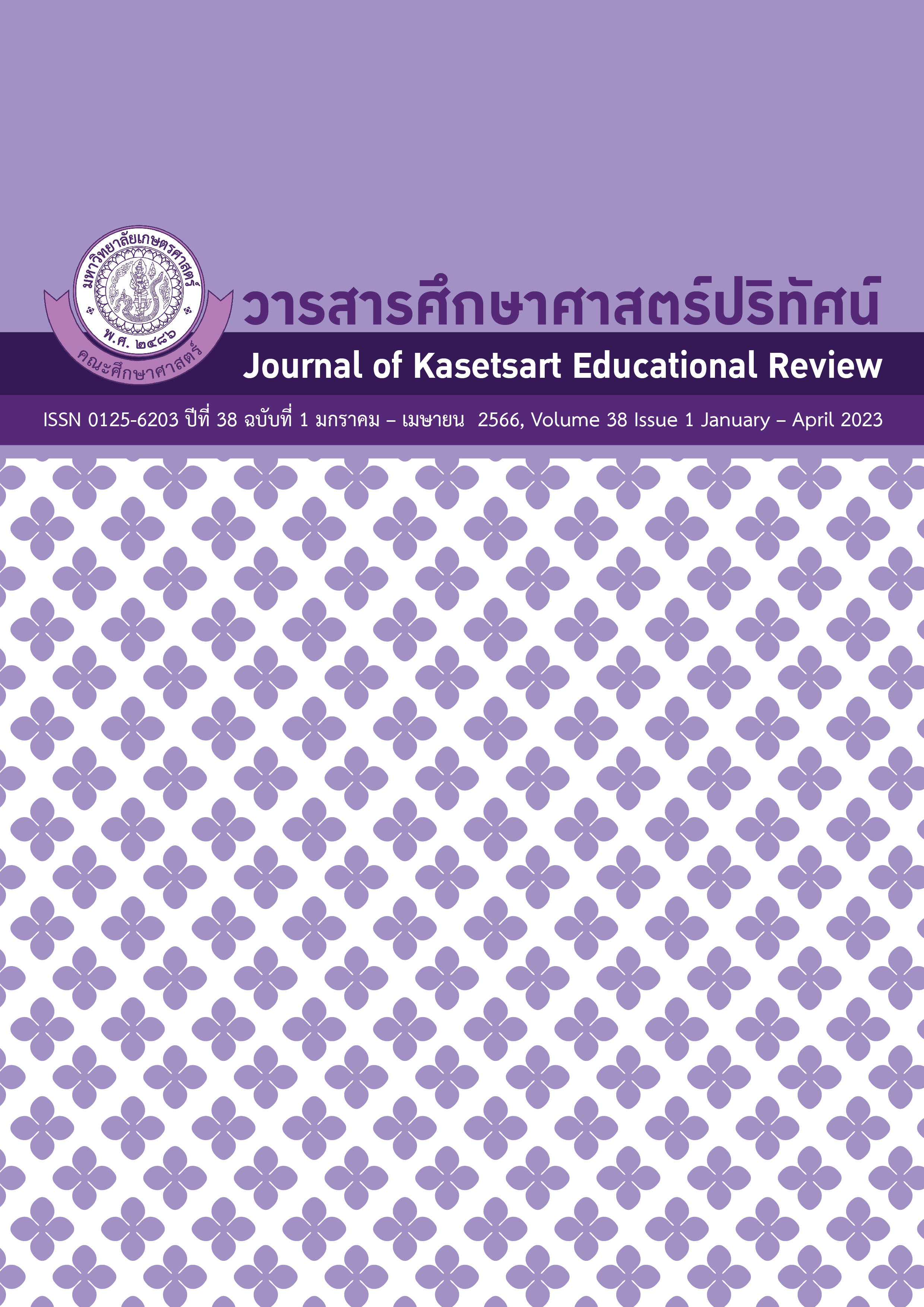การบริหารสถานศึกษาหลักสูตรฐานสมรรถนะบูรณาการด้วยหลักไตรสิกขา
คำสำคัญ:
การบริหารสถานศึกษา, หลักสูตรฐานสมรรถนะ, หลักไตรสิกขาบทคัดย่อ
การบริหารสถานศึกษาหลักสูตรฐานสมรรถนะบูรณาการด้วยหลักไตรสิกขา มีความเชื่อมโยงในหลักการเป็นการมุ่งให้ผู้เรียนนั้นเกิดการเรียนรู้จากการฝึกฝนอบรมตนเอง สามารถจัดการตนเองได้ โดยนำหลักไตรสิกขา ศีล สมาธิ ปัญญา ที่เป็นการฝึกร่างกาย จิตใจ และปัญญาจะทำให้ผู้เรียนเป็นผู้ดำรงตนในศีลธรรมและเป็นพลเมืองที่เข้มแข็ง
มีสติอยู่กับปัจจุบันพร้อมพัฒนาทักษะการเรียนรู้ของตัวเองให้เท่าทันโลกในศตวรรษที่ 21 และเป็นผู้มีปัญญา มีความสามารถคิดขั้นสูงใช้ปัญญาในการสื่อสารอย่างมีประสิทธิภาพ และส่งเสริมทักษะในการคิดวิเคราะห์ของผู้เรียนให้มีสมรรถนะด้านความคิดอย่างมีวิจารณญาณและสามารถแก้ปัญหาได้ ซึ่งสอดคล้องกับการบริหารการเรียนการสอนทุกระดับชั้นที่ต้องการให้ผู้เรียนเป็นผู้มีความรู้และเป็นพลเมืองที่ดีในอนาคต มีกระบวนการทำงานที่ดีทั้งในการจัด
การตนเองและทำงานเป็นทีม
เอกสารอ้างอิง
Chanwatanawong, R. (2014). Seminar Preparation Document: Guidelines for the development of standardized classroom-level curricula. Udon Thani: Udon Thani Educational Service Area District Office 3. [in Thai]
Klangsaeng, T. (2013). Administration according to Brahmaviharn 4 of the school director in the school under Nakhon Sawan Municipality. Master of Buddhist Studies, (Graduate school: Mahachulalongkornrajavidyalaya University). [in Thai]
Nuennoy, S. (2017). Curriculum Administration in World-Class Standard Schools Secondary Education Service Area Office 1 and 2. (Master's Thesis, Dhurakij Pundit University). [in Thai]
Office of the Basic Education Commission Ministry of Education. (2021). Six Core Competencies. Retrieved October 25, 2022, from https://cbethailand.com/
Office of the Education Council. (2007). Personnel administration of school administrators. Bangkok: Office of the National Primary Education Commission. [in Thai]
Prakru Uthaipariyattikosol (Yodsungvan, S.). (2018). Administrative Management Model Applying Trisikkha Principle by Sunday Buddhist Centers of the Central Provinces. (Doctoral Dissertation, Mahachulalongkornrajavidyalaya University). [in Thai]
Phra Dhammapitaka (P.A. Payutto). (1999). Buddhist Teaching Methods. (Bangkok: Berkman Publishing House). [in Thai]
Phuaphan, N. (2014). The Effects of Instruction Base on Tri-sik-kha Principles for Development of 10th Graders’ Metacognition in the Topic of Ecosystems and Human and Sustainable Environment. (Master's Thesis, Kasetsart University). [in Thai]
Sittisomboon, M. (2020). Conceptual Curriculum Development and Application. Phra Nakhon Sri Ayutthaya: Mahachulalongkorn rajavidyalaya printing house. [in Thai]
Siwarat, S. (2017). Life Quality Development with the Threefold Training. Natioanal Defence Studies Institute Journal. [in Thai]
Tipburi, S. (2022). The Threefold Training: The process for developing the good quality of life in society. Proceedings of the 4th National Academic [in Thai]
Thuptawat, P. (2012). The development of learning outcomes on the aspects of criminal law and critical thinking skills of Matthayomsuksa 3 students taught with trisikkha. Master's Thesis, Silpakorn University. [in Thai]
Thongthip, T. (2018). The Concept of Educational Administration according to the Trisikkha principles with systematic theoretical concepts is a perfect coherence. Mahachulagajasara Journal. [in Thai]
ดาวน์โหลด
เผยแพร่แล้ว
ฉบับ
ประเภทบทความ
สัญญาอนุญาต
ลิขสิทธิ์ (c) 2023 วารสารศึกษาศาสตร์ปริทัศน์

อนุญาตภายใต้เงื่อนไข Creative Commons Attribution-NonCommercial-NoDerivatives 4.0 International License.
บทความทุกบทความเป็นลิขสิทธิ์ของวารสารคณะศึกษาศาสตร์ มหาวิทยาลัยเกษตรศาสตร์ วิทยาเขตบางเขน
วารสารศึกษาศาสตร์ปริทัศน์ (Kasetsart Educational Review)






